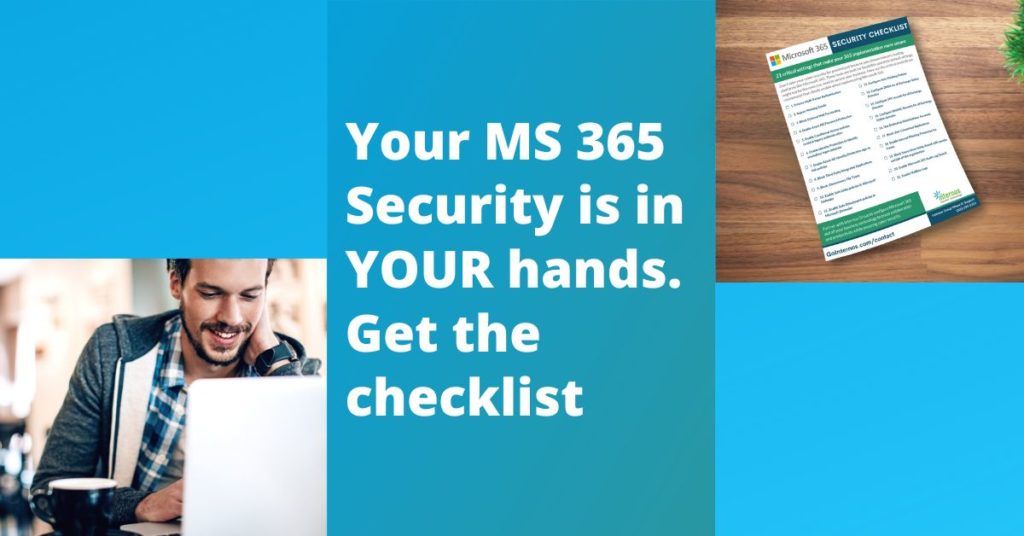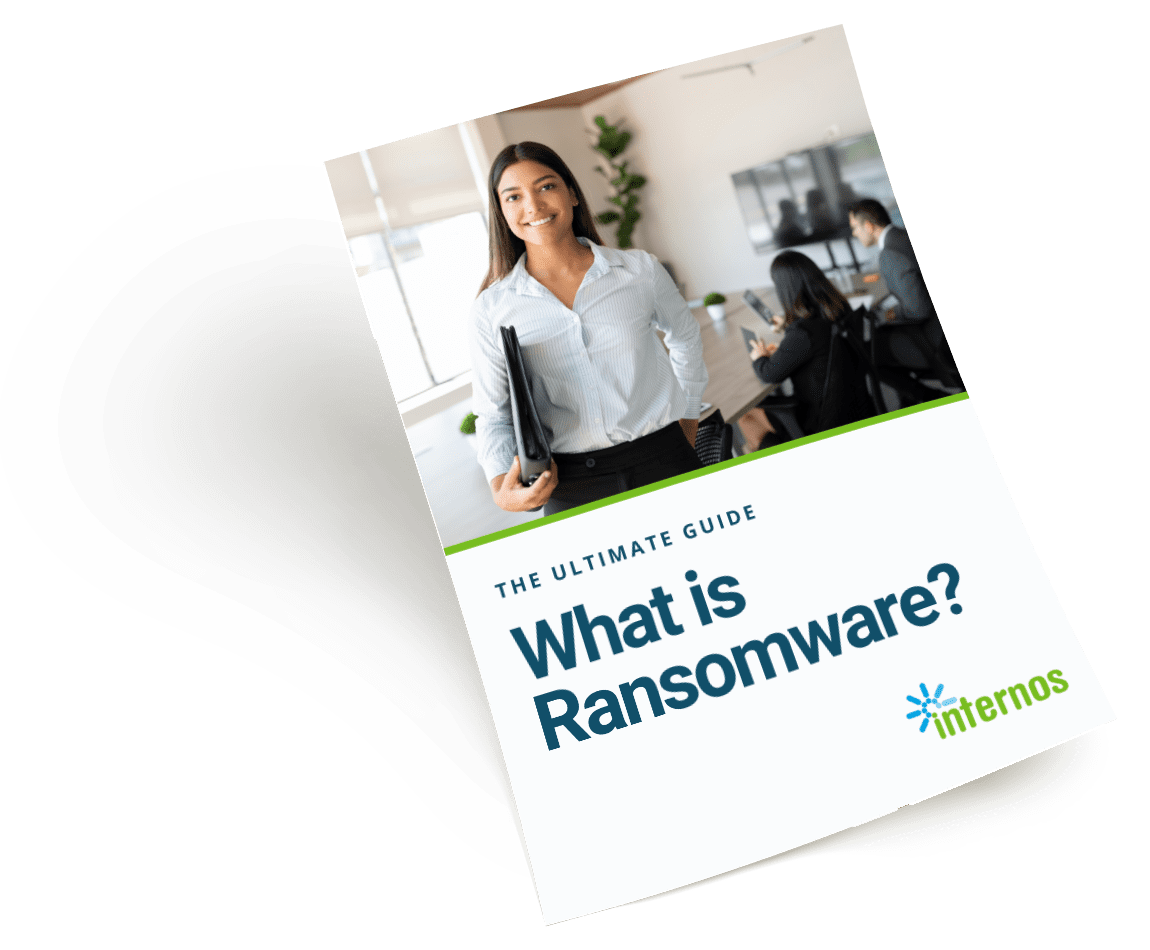
You know about Microsoft 365, but do you know that it does not secure your data? The shared responsibility model of cloud services means that you are responsible for protecting your data. Learn about Microsoft 365 shared responsibility and get a free checklist to help you protect your cloud data.
Cloud services like Microsoft 365 (MS365) are becoming the standard for most businesses today and we absolutely recommend them. But blind trust in its capability to protect your data is foolish. People unfortunately assume that data in the cloud is automatically protected. That simply isn’t the case.
Not sure if your 365 is secure? Download this free checklist.
What Is a Shared Responsibility?
Simply put, shared responsibility means that users (your business) have obligations, as well as the cloud service providers. You cannot take for granted that the cloud services will provide every necessary component. The user agreements for Microsoft 365 and other cloud platforms specifically state both what they provide and what they are NOT responsible for — cyber security and data backups being the chief areas that are under your responsibility as a user.
Cloud Security Is YOUR Responsibility
Cloud services are not responsible for protecting your information. You are! That’s why you need to understand your risks. Breaches, ransomware attacks, phishing scams, etc., are not just scare tactics. They happen every day, in and out of the cloud. It is important for you to understand what the cloud will do to assist you in protecting your business and what you need to do yourself.
Microsoft 365 Shared Responsibility Model
There are many different aspects to Microsoft 365’s shared responsibility model. Here are the most critical to take into your own hands:
- PROTECT YOUR DATA! Microsoft 365 is NOT required to protect the loss of your data in the instance of an app outage. They might take many measures to keep the service up and running, but in the instance of an outage, there still could be a loss of your data. Microsoft is not liable for any data loss. That’s why they make it clear that you should back up your data with a third-party application.
- Microsoft is NOT liable for data loss due to a deprovisioned user account. If you terminate your MS365 account and do not retrieve or back up your information with a third party, it will be permanently lost after the 90 day period is up. Microsoft 365 comes with a variety of security features, but it is up to you to configure them for your business. Check out the 21 critical controls we recommend in our Microsoft 365 Security Checklist. Hint: Backups aren’t the only security concern.
Get the Microsoft 365 Security Checklist
Now that you’ve been made aware of this situation, your best course of action is to download our Microsoft 365 Security Checklist, which we created so you can make sure your MS365 Security is configured correctly. There are many paths you can take to secure your cloud data. We can help you determine the best fit for your needs and budget. Contact us or book a meeting to discuss your IT needs.

